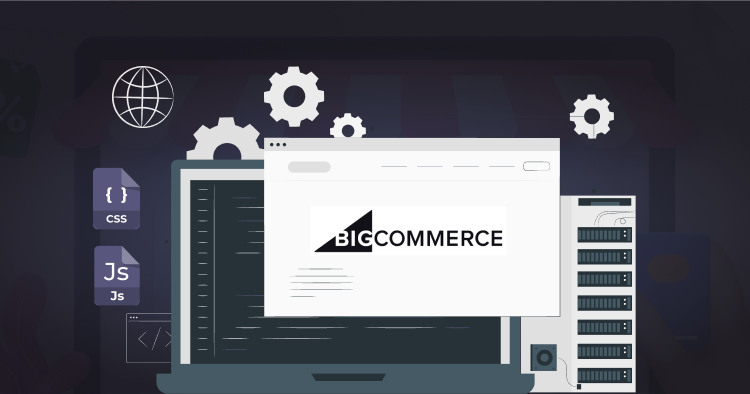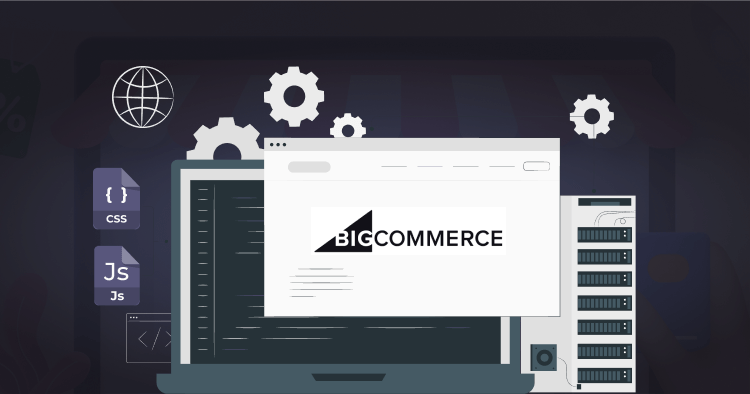As e-commerce evolves, businesses seek flexible and robust platforms to meet their unique needs.
While WooCommerce has long been a popular choice for online stores, 2025 brings a host of alternatives that can enhance your e-commerce strategy.
Whether you’re looking for advanced features, better scalability, or improved user experience, exploring these options can help unlock new growth opportunities.
This blog will delve into the best WooCommerce alternatives available this year.
Each platform offers distinct advantages tailored to various business models, from user-friendly interfaces to robust integrations.
Discover how these solutions can elevate your online store and drive success in a competitive market.
Why You Should Look For WooCommerce Alternatives
E-commerce platforms cater to different groups and audiences in all shapes and sizes.
While WooCommerce is a popular choice for building online stores, several alternatives exist if the current one doesn’t work.
The main reasons why you should look for WooCommerce alternatives include:
Simpler, Easier To Use Platforms
E-commerce beginners might find WooCommerce’s extensive flexibility options overwhelming because the setup process requires extensive technical knowledge.
Alternatives are designed to be user-friendly. They include pre-built templates, drag-and-drop interfaces, and streamlined workflows that help save time and effort in the short and long run.
Cost Considerations
Every business wants to be as lean as possible and achieve the best possible results with the least amount of money spent.
The WooCommerce plugin is free, but a decent store requires premium plugins, themes, and hosting, whose cost could quickly add up to a significant monthly payment.
Alternatively, other platforms can offer all-in-one bundle packages with everything you need to run an online store for a fixed monthly fee.
Fixed monthly fees are more straightforward to budget because you know how much it will cost every month right from the beginning, making it easier to pick which platform works best for you.
Performance and Scalability Requirements
E-commerce has never been more competitive, making it essential to have a platform to keep up with high customer demand and expectations.
If you run a large e-commerce business, WooCommerce will require more resources to do the same job that other platforms do with ease – slowing down orders and revenue.
In contrast, several platforms operate on top of well-built infrastructure to handle large product catalogs and high traffic volumes coming through the store.
Unique Business Needs
Depending on your business model, you might need unreliable features.
In WooCommerce, such as advanced subscription management, membership functionality, or specific integrations.
Some platforms are designed with specific industries or business types in mind, offering tailored features and solutions.
Maintenance and Platform Updates
Keeping your WooCommerce store up to date with the latest security patches, plugin updates, and theme compatibility can be time-consuming.
Many platforms handle all the technical aspects, including security, updates, and backups, allowing you to focus on running your business.
Designing and Personalization
Some platforms provide intuitive design tools and a wider selection of templates, allowing you to create a unique and visually appealing online store.
Community and Support
While there’s a large WooCommerce community, getting timely and personalized support can be challenging.
Many platforms provide dedicated customer support through email, chat, and phone channels.
The Top WooCommerce Alternatives for 2025
We’re now at the business end of the article, listing the top WooCommerce alternatives that online businesses can consider if they want to switch to a new one.
The six top WooCommerce alternatives include:
Shopify
Shopify has long been one of the most used e-commerce platforms globally, thanks to its cloud-based infrastructure, strong built-in tools, and app store.
The main Shopify features include:
- An easy-to-use drag-and-drop interface, intuitive interface, and user-friendly dashboard make it great for beginners.
- Shopify offers out-of-the-box hosting, various security features, and regular updates.
- Access to thousands of apps via the Shopify app store, including shipping, marketing, accounting, data management, and more.
- Native Shopify SEO marketing features include SEO tools, email marketing tools, and social media integration – the trifecta of modern digital marketing.
- Round-the-clock customer support via phone, email, and chat to help businesses when Shopify malfunctions.
However, Shopify can often lag due to high transaction fees, limited customizations, high pricing for advanced plans, and vendor lock-in, making migrating to a new platform challenging.
Shopify Plus
Enterprise-level clients can opt for Shopify Plus to cater to higher traffic volumes, large product catalogs, and broader operations.
Shopify Plus scales with the business to ensure your online store stays active whenever required, whether in the regular or peak season (Black Friday, Fourth of July).
Companies using Shopify Plus can access dedicated support via an account manager, extensive customization options, headless commerce, and even wholesale channel management.
Shopify Plus also has higher API limits, which improve integrations with other business systems and help build more streamlined workflows.
However, the main Shopify Plus caveats include:
- Shopify Plus is more expensive than standard plans.
- Shopify Plus requires significantly more technical experience to integrate and deploy.
BigCommerce
BigCommerce is a significant e-commerce platform that rivals Shopify regarding reach and features.
Many e-commerce businesses use BigCommerce because it comes with various built-in features that companies require right out of the box, such as an abandoned cart saver and faceted search.
As the name suggests, BigCommerce ensures that e-commerce stores with significant operations and big dreams have the right platform to manage their growth and catalogs. Bigcommerce is a strong alternative for B2B businesses much more advance than Shopify in terms of build-in features.
Additionally, multi-channel selling on different platforms (eBay, Amazon) helps the brand expand its reach beyond the regular.
However, the main downsides of using BigCommerce include:
- A BigCommerce admin might be difficult to configure for people new to e-commerce or Bigcommerce.
- The BigCommerce application selection is limited compared to the competition, though customized app development is possible through Folio3.
See Also: How a BigCommerce Development Company Creates a Captivating Online Shopping Experience
Magento (Adobe Commerce)
B2B e-commerce stores often resort to Magento because it is a powerful, feature-rich, open-source platform renowned for its flexibility and extensive customization.
Businesses often prefer Magento because the platform is highly customizable in form and functionality.
Magento can adapt to every business need and model to ensure their coverage extends to as many industries as possible.
Magento was designed for B2B e-commerce. It easily handles large product catalogs and high traffic, scaling operations whenever necessary to meet demand.
Additionally, Magento is an open-source platform that grants the company complete control over their store’s code, allowing them to personalize it however they want.
However, Magento has its limitations that include:
- An overly complex implementation process that requires experienced developers, dissuading smaller businesses from using Magento
- High maintenance costs, mainly if the business uses the cloud-hosted Adobe Commerce version, are much higher than the competition’s.
- A steep learning curve because of the various technical aspects of the platform making it unsuitable for beginners.
Wix E-Commerce
A website builder platform with a user-friendly drag-and-drop interface also offers eCommerce functionality.
Wix is extremely easy to use and, combined with its affordability, is generally more affordable than other options.
Additionally, Wix offers various visually appealing templates for businesses to install into their stores and build unique branding.
However, Wix is limited compared to other platforms in terms of:
- Limited scalability makes it difficult for high-volume businesses.
- Limited functionality compared to other platforms in this list.
- Wix vendor lock-in makes it challenging to migrate away to another platform.
Key Factors to Consider When Choosing a WooCommerce Alternative
Picking a WooCommerce alternative is a tricky process that involves several variables.
Here’s a list of the key factors companies should consider before picking an option.
Business Goals
- Be transparent about what the business sells, e.g., digital goods, physical products, subscriptions, or services, because specific platforms perform better than others with certain products.
- Specify whether you’re a startup, small business, or a large enterprise because you want a platform that scales with you.
- Know which features (Inventory management, shipping integrations, marketing tools, etc.) the store needs and which platform facilitates them.
- Consider platform fees, transaction fees, app costs, and potential development expenses.
Technical Skills and Ease-of-use
- How comfortable are you with website management? Some e-commerce platforms are more user-friendly than others.
- Is there sufficient development experience or a team to support you? Having support will influence your choice between simpler platforms and more complex ones like Magento.
- How much time can you dedicate to setup and maintenance because some platforms require more hands-on management than others.
Scalability and Performance
- How many products do you have or plan to have? Some platforms are better equipped to handle large catalogs.
- Do you anticipate high traffic volumes? Choose a platform with robust infrastructure to ensure website speed and performance.
- Will the store be selling internationally? You should consider features like multi-currency support and international shipping options.
Design and Customization
- How important is the visual appeal of your store? Most e-commerce platforms offer more design flexibility than others.
- Do you need specific branding options? Ensure the platform you choose allows you to customize your store’s appearance to match your brand.
- Are you comfortable with code customization or will you rely on templates and themes?
SEO and Marketing
- What marketing tools do you need? (Email marketing, social media integration, SEO features)
- How important is search engine optimization for your business? Choose a platform with strong SEO capabilities because search engine ranking is essential in a digital space.
- Does the platform integrate with your preferred marketing tools? You need a platform that delivers value and works with the rest of your marketing tools.
Integration and Extensions
- Do you need to integrate with other systems? Common examples include CRMs, accounting softwares, and payment gateways.
- Does the platform offer the necessary integrations or have an app store with relevant extensions?
Pricing and Fees
- Understand the pricing structure. (Monthly fees, transaction fees, storage fees, etc.)
- Calculate the total cost of ownership. Consider all potential expenses, including apps and development costs.
Store Security
- Ensure the platform has robust security measures in place. (SSL certificates, data encryption, fraud prevention)
- Check for compliance with relevant security standards. (PCI DSS compliance for handling credit card information)
Conclusion
Choosing the right e-commerce platform is crucial for your business’s growth and success.
As we’ve explored, several WooCommerce alternatives in 2025 provide unique features and capabilities that can cater to your specific needs.
By evaluating these options, you can find a solution that not only enhances your online store but also aligns with your long-term goals.
Embrace the opportunity to innovate and expand your e-commerce presence.
The right platform can streamline operations, improve customer experiences, and ultimately drive sales.
Take the time to assess your options and make an informed decision that positions your business for success in the ever-changing digital landscape.



